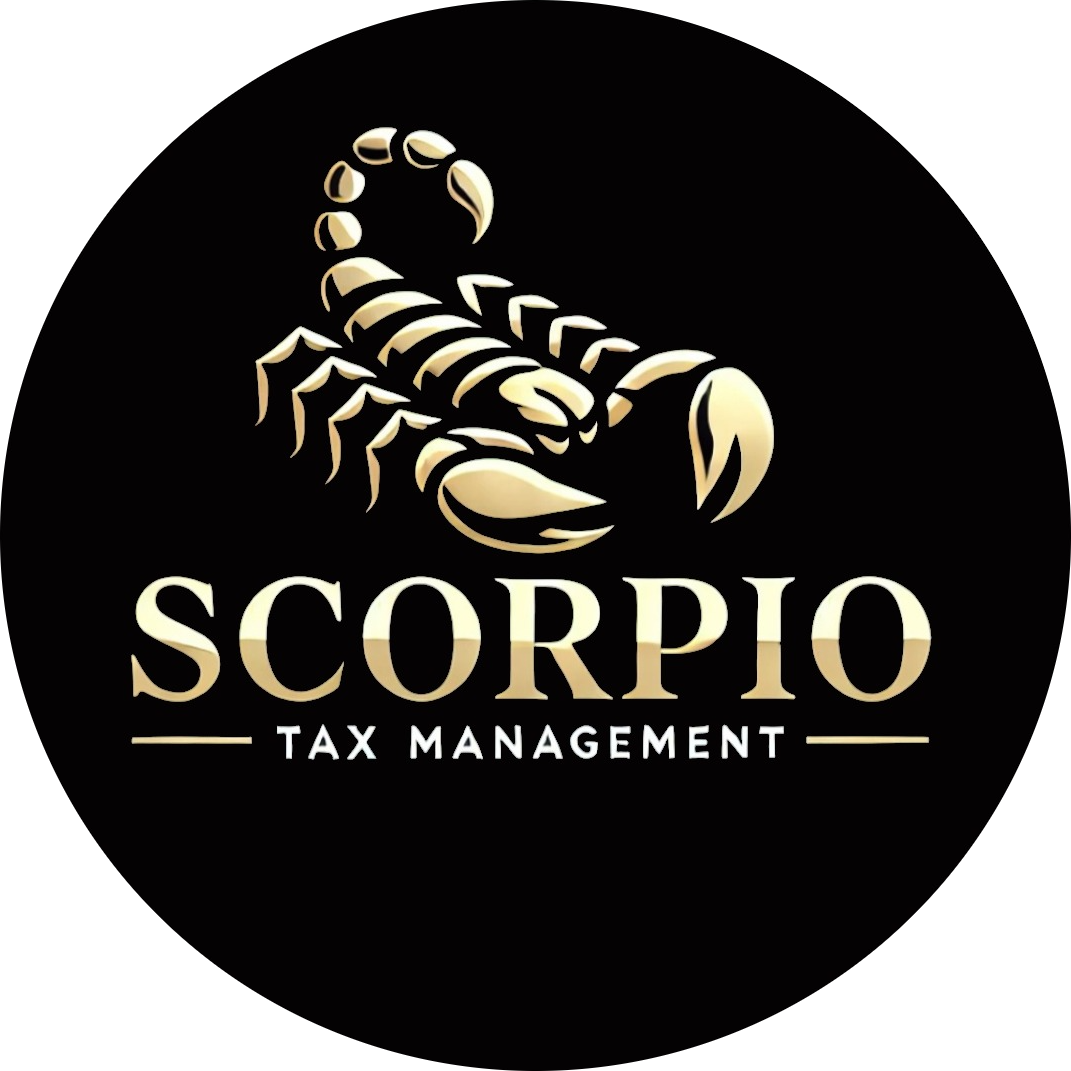Tax Corrections: Your Guide to Amended Tax Returns
Have you discovered an error on a filed tax return? Did you miss a crucial tax deduction, overlook a tax credit, or realize you reported incorrect income? Don't panic. The IRS understands mistakes happen, and you have options to fix them: amended tax returns and superseded returns.
Write to Tax@S-CorpTax.com, or call (858) 779-4125.
An amended tax return (specifically IRS Form 1040-X, Amended U.S. Individual Income Tax Return) is your official way to correct a previously filed federal income tax return after the original due date (including extensions).
Amended Returns
Common Reasons to File an Amended Tax Return:
Incorrect Income Reporting: You received a late W-2, 1099, or K-1, or simply forgot to report certain income. This is a frequent reason to amend taxes and crucial for IRS accuracy.
Missed Tax Deductions or Credits: Perhaps you overlooked eligible tax write-offs, qualified for a tax credit you didn't claim (like the Child Tax Credit, Earned Income Tax Credit, or education credits), or discovered new deductible expenses. Claiming missed deductions can significantly reduce tax liability or result in a tax refund.
Change in Filing Status: You filed as Single but should have been Head of Household, or perhaps Married Filing Separately instead of Jointly (or vice versa due to life changes like marriage or divorce). Correcting filing status impacts your tax bracket and eligibility for various benefits.
Errors in Dependent Information: You mistakenly claimed a dependent you weren't eligible for, or conversely, forgot to claim an eligible dependent.
Correcting Math Errors (Sometimes): While the IRS usually corrects simple math errors, if a complex miscalculation impacts your tax outcome, an amended return may be necessary.
Carrybacks: If you're utilizing certain carryback provisions (like Net Operating Losses for businesses) from a later tax year that affect a prior year's return.
When NOT to File an Amended Return:
For simple math errors that the IRS will automatically correct.
If you forgot to attach a form (like a W-2 or schedule) that the IRS typically requests if needed.
Key Timelines for Amended Tax Returns – The Statute of Limitations
Understanding the statute of limitations for amended tax returns is critical, especially when you're seeking a tax refund.
To Claim a Refund: Generally, you must file Form 1040-X within 3 years from the date you filed your original return or 2 years from the date you paid the tax, whichever is later.
Important Note: If you filed your original return before its due date (e.g., in February for an April 15th deadline), the IRS considers it filed on the original due date.
Overpaid taxes can only be claimed if you meet these strict IRS deadlines.
To Report Additional Tax Due: If your amendment results in you owing more tax, you should file Form 1040-X and pay the additional amount as soon as possible to minimize penalties and interest. The IRS generally has 3 years from the filing date (or due date, if later) to assess additional tax, but there's no time limit if you never filed or filed a fraudulent return.
Processing Times for Amended Returns:
Be prepared for a wait. Unlike original returns, amended returns are often processed manually and can take significantly longer.
The IRS generally states 8 to 16 weeks for amended return processing.
You can track the status of your Form 1040-X using the "Where's My Amended Return?" tool on the IRS website, typically after 3 weeks from mailing.
Implications of Filing an Amended Tax Return:
Potential for Refund: If your changes result in a lower tax liability, you'll receive a tax refund for the difference.
Potential for Tax Due: If your changes result in higher tax liability, you'll owe additional tax and potentially interest or penalties. Paying promptly can mitigate these.
Impact on State Taxes: Remember that changes to your federal tax return often impact your state tax return. You may need to file an amended state tax return as well.
Audit Risk: While filing an amended return itself doesn't automatically trigger an IRS audit, it does draw attention to your return. This is why accuracy and proper documentation are paramount.
What is a Superseded Return?
It's crucial to distinguish an amended tax return from a superseded return.
A superseded return is a complete, corrected tax return filed before the original filing deadline, including any valid extensions.
Key Difference: If you discover an error and file a corrected return before the April 15th deadline (or extended deadline like October 15th for an extended return), it's considered a superseded return. It effectively replaces your previously filed return, making the earlier one null and void.
Form Used: You typically use the same form as your original return (e.g., Form 1040), not Form 1040-X. You simply check a box indicating it's a superseded return if your software supports it.
Benefits: Filing a superseded return can be advantageous because it allows you to make changes (including certain elections that must be made on an original, timely-filed return) without the additional scrutiny or extended processing times associated with amended returns.
The Importance of Professional Tax Guidance
Navigating the nuances of amended returns, superseded returns, statutes of limitations, and their tax implications can be complex. Making errors on an amended return can lead to further complications with the IRS.
A specialized tax advisor can help you:
Determine if filing an amended return is necessary or advisable.
Properly calculate the changes and their impact on your tax liability.
Ensure all necessary forms and schedules are correctly completed and attached to Form 1040-X.
Navigate the IRS process and communicate effectively with tax authorities.
Identify missed tax opportunities from prior years that could lead to tax refunds.
Don't let past tax mistakes cause future headaches. Whether you need to correct a simple oversight or tackle a complex tax situation, accurate and timely tax corrections are essential for your financial well-being.
Don’t attempt to handle your tax situation all by yourself… work with professionals!
The trouble and money a good tax strategist can save you often pays off right away.
Scorpio Tax Management can help you. There’s no cost to have a first conversation.
We are Enrolled Agents, licensed directly by the IRS to advise and represent taxpayers.
Scorpio Tax Management can assist High Income Earners and Business Owners in all 50 states
Please write us at Tax@S-CorpTax.com, or call (858) 779-4125. You can also schedule a call in advance HERE.
California
We assist business owners in all the following California cities and their surrounding areas:
San Francisco, including Marin County (Sausalito, Mill Valley, Tiburon), Silicon Valley (Palo Alto, Menlo Park, Mountain View), and the entire East Bay (Oakland, Berkeley, Fremont).
Paso Robles, including Atascadero, San Luis Obispo, Morro Bay, and all other parts of the Central Coast.
Santa Barbara, including Buellton, Santa Ynez, Montecito, Ventura, Oxnard, and Carpinteria.
Los Angeles, including Malibu, Santa Monica, Beverly Hills, Hollywood, South Bay (Manhattan Beach, Redondo Beach), and Pasadena.
Orange County, including Anaheim, Huntington Beach, Newport Beach, Irvine, Laguna Beach, and Costa Mesa.
San Diego, including Del Mar, La Jolla, Rancho Santa Fe, Encinitas, Oceanside, and Carlsbad.
Palm Springs, including Palm Desert, Rancho Mirage, Indio, La Quinta, and all other parts of the Coachella Valley.
Florida
We serve business owners across Florida’s vibrant cities and regions, from bustling urban centers to coastal communities:
Miami, including Miami Beach, Coral Gables, Coconut Grove, Key Biscayne, and the greater Miami-Dade County area.
Fort Lauderdale, including Hollywood, Pompano Beach, Weston, Davie, and all of Broward County.
West Palm Beach, including Boca Raton, Delray Beach, Jupiter, Palm Beach Gardens, and the entire Palm Beach County area.
Tampa, including St. Petersburg, Clearwater, Sarasota, Bradenton, and the broader Tampa Bay region.
Orlando, including Winter Park, Kissimmee, Lake Buena Vista, Celebration, and the greater Central Florida area.
Jacksonville, including St. Augustine, Ponte Vedra Beach, Amelia Island, and all of Duval and St. Johns Counties.
Naples, including Marco Island, Bonita Springs, Estero, and the entire Collier County and Southwest Florida region.
Nevada
Our tax services extend to Nevada’s key business hubs and surrounding communities, supporting entrepreneurs in a tax-friendly state:
Las Vegas, including Henderson, Summerlin, North Las Vegas, Boulder City, and the entire Clark County area.
Reno, including Sparks, Carson City, Truckee, and the broader Washoe County and Northern Nevada region.
Lake Tahoe (Nevada side), including Incline Village, Stateline, Zephyr Cove, and the surrounding South Lake Tahoe area.
Henderson, including Green Valley, Anthem, Seven Hills, and nearby communities in the Las Vegas Valley.
Elko, including Spring Creek, Carlin, and the greater Northeastern Nevada region.
Mesquite, including St. George (nearby Utah border), Bunkerville, and the Virgin Valley area.
Pahrump, including Nye County and surrounding rural communities west of Las Vegas.
Tennessee
We support business owners in Tennessee’s dynamic cities and regions, from music hubs to growing entrepreneurial centers:
Nashville, including Franklin, Brentwood, Hendersonville, Murfreesboro, and the greater Davidson and Williamson County areas.
Memphis, including Germantown, Collierville, Cordova, Bartlett, and the broader Shelby County region.
Knoxville, including Farragut, Maryville, Oak Ridge, Sevierville, and the entire East Tennessee area.
Chattanooga, including Lookout Mountain, Signal Mountain, Hixson, and the surrounding Hamilton County and Southeast Tennessee region.
Clarksville, including Hopkinsville (nearby Kentucky border), Springfield, and the greater Montgomery County area.
Johnson City, including Kingsport, Bristol, Elizabethton, and the Tri-Cities region of Northeast Tennessee.
Gatlinburg, including Pigeon Forge, Sevierville, and the Smoky Mountains area, catering to tourism-driven businesses.
We are not limited to the above states… Reach out to us! Our contact info is below.
Selling a Business or its Assets
Tax Treatment When Selling Business Assets: A Comprehensive Guide for Business Owners
Selling business assets is a significant financial decision that can impact your tax obligations and overall profitability. Whether you’re liquidating equipment, selling real estate, or transferring intellectual property, understanding the tax treatment of these transactions is crucial to minimizing your tax liability and ensuring compliance with IRS regulations. Our Enrolled Agent-led tax advisory firm specializes in guiding business owners through the complexities of asset sales to achieve optimal tax outcomes.
This detailed guide explores the tax implications of selling business assets, key considerations for different asset types, and how an Enrolled Agent can help you navigate the process. Designed for small business owners, entrepreneurs, and corporate leaders, this resource provides actionable insights to maximize your after-tax proceeds while staying compliant with federal and state tax laws.
Write to Tax@S-CorpTax.com, or call (858) 779-4125.
Understanding the Tax Treatment of Selling Business Assets
When you sell a business asset, the transaction typically generates a taxable event, resulting in either a capital gain or a capital loss. The tax treatment depends on several factors, including the type of asset, how long you’ve owned it, and how the asset was used in your business. The IRS categorizes business assets into different classes, each with specific tax rules:
Tangible Assets: Physical items like machinery, vehicles, furniture, or real estate.
Intangible Assets: Nonphysical assets such as patents, trademarks, copyrights, or goodwill.
Inventory: Goods held for sale in the ordinary course of business, taxed differently than capital assets.
The tax consequences of selling these assets hinge on whether the sale results in a capital gain, ordinary income, or a recapture of depreciation. Below, we break down the key tax considerations and strategies to optimize your tax position.
Key Tax Considerations When Selling Business Assets
1. Capital Gains vs. Ordinary Income
The tax treatment of an asset sale depends on whether the gain is classified as a capital gain or ordinary income:
Capital Gains: Most business assets, such as equipment, real estate, or intangible assets, are considered capital assets. When sold, they generate a capital gain or loss based on the difference between the sale price and the asset’s adjusted basis (original cost minus depreciation or other adjustments).
Long-Term Capital Gains: Assets held for more than one year qualify for lower long-term capital gains tax rates (0%, 15%, or 20%, depending on your income). For 2025, these rates apply to individuals and businesses filing as pass-through entities (e.g., LLCs, S-Corps).
Short-Term Capital Gains: Assets held for one year or less are taxed at ordinary income rates, which can be as high as 37% for high earners.
Ordinary Income: Certain assets, like inventory or accounts receivable, are taxed as ordinary income when sold, regardless of holding period. Additionally, depreciation recapture (discussed below) is taxed at ordinary income rates.
Example: If you sell a piece of equipment for $50,000 with an adjusted basis of $30,000, the $20,000 gain is a capital gain. If held for over a year, it’s taxed at the long-term capital gains rate. However, any depreciation claimed on the equipment may be recaptured as ordinary income.
2. Depreciation Recapture
When you sell a depreciable asset (e.g., machinery, vehicles, or real estate), the IRS may “recapture” some of the depreciation deductions you previously claimed. This recaptured amount is taxed as ordinary income, not as a capital gain, which can significantly increase your tax liability.
Section 1245 Property: Tangible personal property (e.g., equipment, vehicles) is subject to Section 1245 depreciation recapture. The gain attributable to depreciation is taxed at ordinary income rates, up to the amount of depreciation claimed.
Section 1250 Property: Real estate is subject to Section 1250 recapture, but only unrecaptured depreciation (e.g., straight-line depreciation) is taxed at a special rate of 25% for individuals.
Example: You sell a machine for $60,000 with an original cost of $80,000 and $30,000 in accumulated depreciation. The adjusted basis is $50,000 ($80,000 - $30,000), so the total gain is $10,000. However, the $30,000 of depreciation is recaptured as ordinary income, and only the remaining gain (if any) is treated as a capital gain.
3. Asset Classification and Allocation
When selling an entire business or multiple assets, the IRS requires you to allocate the sale price among the assets based on their fair market value. This allocation affects the tax treatment, as different assets (e.g., inventory, equipment, goodwill) are taxed differently. IRS Form 8594 (Asset Acquisition Statement) is used to report this allocation for both the buyer and seller.
Tip: Work with a tax advisor to strategically allocate the sale price to minimize taxes. For example, allocating more value to assets generating long-term capital gains (e.g., goodwill) rather than ordinary income (e.g., inventory) can reduce your tax burden.
4. Net Investment Income Tax (NIIT)
For high-income taxpayers, the sale of business assets may trigger the Net Investment Income Tax (NIIT), a 3.8% surtax on certain investment income. The NIIT applies to individuals with modified adjusted gross income (MAGI) above $200,000 (single) or $250,000 (married filing jointly). If the asset sale generates capital gains or recaptured depreciation, it may be subject to this additional tax.
5. State and Local Taxes
In addition to federal taxes, selling business assets may trigger state and local tax obligations. Some states impose their own capital gains taxes, while others may have specific rules for depreciation recapture or business asset sales. Multi-state businesses must consider tax implications in each jurisdiction where assets are located.
Strategies to Minimize Taxes When Selling Business Assets
To optimize the tax treatment of an asset sale, consider these strategies:
Time the Sale for Long-Term Capital Gains: Hold assets for more than one year to qualify for lower long-term capital gains rates. Timing the sale to occur in a year with lower income can further reduce your tax rate.
Offset Gains with Losses: If you have capital losses from other transactions (e.g., selling underperforming investments), use them to offset capital gains from the asset sale. Up to $3,000 of net capital losses can also offset ordinary income annually.
Consider an Installment Sale: If selling high-value assets, an installment sale allows you to spread the gain over multiple years, potentially reducing your tax bracket and avoiding the NIIT. However, depreciation recapture must be reported in the year of sale.
Leverage Section 1031 Exchanges for Real Estate: For real estate assets, a Section 1031 like-kind exchange allows you to defer capital gains taxes by reinvesting the proceeds into a similar property. Strict IRS rules apply, so consult a tax advisor.
Plan for Depreciation Recapture: Anticipate recapture taxes and budget accordingly. Your tax advisor can help you estimate recapture amounts and explore ways to minimize ordinary income.
How an Enrolled Agent Can Help with Selling Business Assets
Navigating the tax implications of selling business assets requires expertise and precision. Enrolled Agents (EAs) are federally licensed tax professionals with the authority to represent taxpayers before the IRS in all matters, including complex asset sales. Here’s how Scorpio Tax Management’s Enrolled Agents can assist:
1. Tax Planning for Asset Sales
Our EAs analyze your asset portfolio and business goals to develop a tax-efficient sale strategy. We evaluate holding periods, depreciation recapture, and allocation options to minimize your tax liability and maximize after-tax proceeds.
2. Accurate Valuation and Allocation
Properly valuing and allocating the sale price among assets is critical for compliance and tax optimization. We work with appraisers and use IRS guidelines to ensure accurate reporting on Form 8594, reducing the risk of IRS scrutiny.
3. Depreciation Recapture Analysis
We calculate depreciation recapture and explore strategies to mitigate its impact, such as timing the sale or offsetting income with losses. Our detailed analysis ensures you’re prepared for the tax consequences.
4. IRS Representation
If the IRS questions your asset sale or audits your return, our Enrolled Agents provide expert representation. We handle all communications, prepare documentation, and negotiate to resolve disputes efficiently.
5. Compliance with Federal and State Regulations
Selling business assets involves federal and state tax filings, including capital gains reporting and state-specific forms. Our EAs ensure all requirements are met, avoiding penalties and ensuring compliance.
6. Strategic Long-Term Planning
Beyond the immediate sale, we help you plan for future tax obligations, reinvest proceeds wisely, and structure your business to minimize taxes. Whether you’re transitioning to a new venture or retiring, we provide tailored advice.
Scorpio Tax Management can support High Income Earners and Business Owners in all 50 states
Please write us at Tax@S-CorpTax.com, or call 858 779 4125!
California
We assist business owners in all the following California cities and their surrounding areas:
San Francisco, including Marin County (Sausalito, Mill Valley, Tiburon), Silicon Valley (Palo Alto, Menlo Park, Mountain View), and the entire East Bay (Oakland, Berkeley, Fremont).
Paso Robles, including Atascadero, San Luis Obispo, Morro Bay, and all other parts of the Central Coast.
Santa Barbara, including Buellton, Santa Ynez, Montecito, Ventura, Oxnard, and Carpinteria.
Los Angeles, including Malibu, Santa Monica, Beverly Hills, Hollywood, South Bay (Manhattan Beach, Redondo Beach), and Pasadena.
Orange County, including Anaheim, Huntington Beach, Newport Beach, Irvine, Laguna Beach, and Costa Mesa.
San Diego, including Del Mar, La Jolla, Rancho Santa Fe, Encinitas, Oceanside, and Carlsbad.
Palm Springs, including Palm Desert, Rancho Mirage, Indio, La Quinta, and all other parts of the Coachella Valley.
Florida
We serve business owners across Florida’s vibrant cities and regions, from bustling urban centers to coastal communities:
Miami, including Miami Beach, Coral Gables, Coconut Grove, Key Biscayne, and the greater Miami-Dade County area.
Fort Lauderdale, including Hollywood, Pompano Beach, Weston, Davie, and all of Broward County.
West Palm Beach, including Boca Raton, Delray Beach, Jupiter, Palm Beach Gardens, and the entire Palm Beach County area.
Tampa, including St. Petersburg, Clearwater, Sarasota, Bradenton, and the broader Tampa Bay region.
Orlando, including Winter Park, Kissimmee, Lake Buena Vista, Celebration, and the greater Central Florida area.
Jacksonville, including St. Augustine, Ponte Vedra Beach, Amelia Island, and all of Duval and St. Johns Counties.
Naples, including Marco Island, Bonita Springs, Estero, and the entire Collier County and Southwest Florida region.
Nevada
Our tax services extend to Nevada’s key business hubs and surrounding communities, supporting entrepreneurs in a tax-friendly state:
Las Vegas, including Henderson, Summerlin, North Las Vegas, Boulder City, and the entire Clark County area.
Reno, including Sparks, Carson City, Truckee, and the broader Washoe County and Northern Nevada region.
Lake Tahoe (Nevada side), including Incline Village, Stateline, Zephyr Cove, and the surrounding South Lake Tahoe area.
Henderson, including Green Valley, Anthem, Seven Hills, and nearby communities in the Las Vegas Valley.
Elko, including Spring Creek, Carlin, and the greater Northeastern Nevada region.
Mesquite, including St. George (nearby Utah border), Bunkerville, and the Virgin Valley area.
Pahrump, including Nye County and surrounding rural communities west of Las Vegas.
Tennessee
We support business owners in Tennessee’s dynamic cities and regions, from music hubs to growing entrepreneurial centers:
Nashville, including Franklin, Brentwood, Hendersonville, Murfreesboro, and the greater Davidson and Williamson County areas.
Memphis, including Germantown, Collierville, Cordova, Bartlett, and the broader Shelby County region.
Knoxville, including Farragut, Maryville, Oak Ridge, Sevierville, and the entire East Tennessee area.
Chattanooga, including Lookout Mountain, Signal Mountain, Hixson, and the surrounding Hamilton County and Southeast Tennessee region.
Clarksville, including Hopkinsville (nearby Kentucky border), Springfield, and the greater Montgomery County area.
Johnson City, including Kingsport, Bristol, Elizabethton, and the Tri-Cities region of Northeast Tennessee.
Gatlinburg, including Pigeon Forge, Sevierville, and the Smoky Mountains area, catering to tourism-driven businesses.
We are not limited to the above states… Reach out to us! Our contact info is below.









